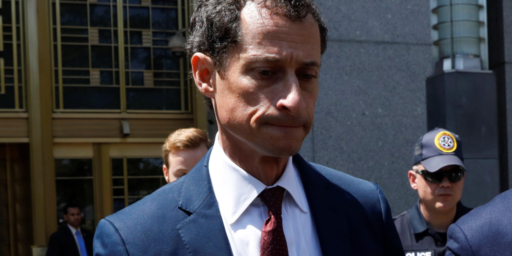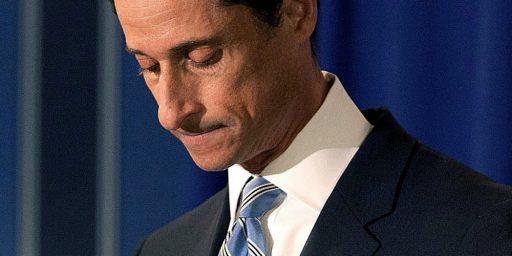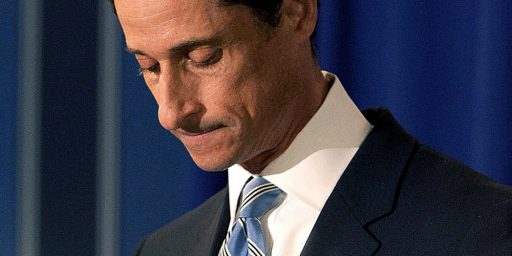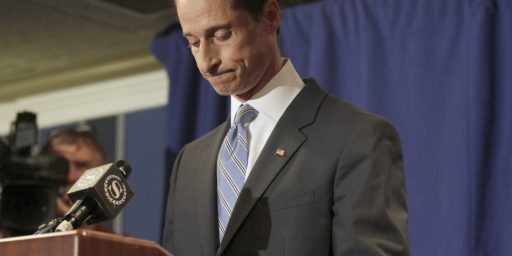Character and Candidacies
Political Scientist Greg Weiner makes an argument for character in the NYT: The Scoundrel Theory of American Politics.
there is also a novel and ominous concept of the statesman emerging in American politics, most clearly in the gymnastic contortions being accomplished to justify support for the Senate campaign of Roy Moore, the former chief justice of Alabama: the politician as a disembodied policy array.
In this scheme, the candidate is a mere vessel for policy preferences. His or her character is irrelevant because the potential officeholder is to be judged wholly by the policies he or she will support.
Weiner goes on to discuss why he finds this pernicious.
Of course, much is predicated on the notion that “statesman” is the appropriate term to apply to political candidates, a position I question (and not because I don’t normatively prefer the notion of “statesmen” in office, but because I am not sure that, as an empirical matter, most politicians fall into that category).
Really, the issues that Weiner is trying to get at are as old as political philosophy: to what degree is good government dependent upon, or indeed driven by, good officeholders and to what degree can government be designed to ameliorate the effects of bad officeholders (I actually touch on this in my post on on regime type).
The problem is: the only method in our system to filter character is via votes: first to nominate, then to elect. At either one of those decision points, it is very difficult for character to be the deciding factor, if anything because voters have incomplete information and are influenced by a variety of variables. Certainly by the time the general election is reached, voters are heavily influenced by partisan preferences.
There is a reason that one of my favorite quotes of all time is: “If men were angels, no government would be necessary. If angels were to govern men, neither external nor internal controls on government would be necessary. In framing a government which is to be administered by men over men, the great difficulty lies in this: you must first enable the government to control the governed; and in the next place oblige it to control itself” (James Madison, Federalist 51).






I hate to say it, but in a democracy Alabama should be represented by a racist Dominionist. ‘Tis true, ’tis true ’tis pity, And pity ’tis, ’tis true.
There is a more powerful argument for opposing candidates based on certain (but not all) character failings: by voting for such a candidate you are signaling to others with that failing that you will provide cover for their behavior and, if exposed, defend them and attack the ones outing them. In return all they have to do is espouse certain beliefs loudly and often. As the Catholic Church found out, there are many who will take that bargain. Eventually, they are numerous enough to essentially take over the organization.
Alabama has already shown itself as an appealing place to live if you are a pederast willing to say “Jesus” a lot. If Moore is actually elected they will continue to send that message every time he appears in front of a camera or is quoted in a newspaper.
@MarkedMan: Keep in mind: turnout is likely to be about 20%. So, much as Alabama deserves a huge amount of criticism, let’s not pretend like half of those folks choosing Moore tell you all you need to need to know about all of the citizens of AL (any more than a Jones victory will mean that the state is redeemed in all things). For that matter: not all of America is responsible for Trump.
@Steven L. Taylor: Although I do agree that if Moore is elected it will be a blight on the state (a deserved one) and you are correct:
BWAHAHAHAHAHAHAHAHAHAHAHAHAHAHAHAHAHAHAHAHAHAHAHA….. he says in the age of trump.
@Steven L. Taylor: that tells me that 80% are fine with either candidate, which is somewhat more damning, but not a failing that is limited to Alabama.
@Gustopher:
As you allude: this is behavior not limited to Alabama. Voter turnout in the US is terrible. And, worse, we shouldn’t vote on a workday.
@Steven L. Taylor:
If election day were a Saturday (or possibly the full weekend) what do you think would be the effect on total turn-out? I know that many EU countries do the weekend vote thing. Are there direct comparable studies where a country (or smaller entity) switched from weekday to weekend voting on voter turnout percentage?
@de stijl: I cannot think of a study off the top of my head–but I do know that a significant number of cases, and not just in Europe, hold elections elections either on weekends or declare a national holiday.
We currently vote on Tuesdays so rural voters could travel on Mondays to come into town to vote.
@Steven L. Taylor:
I will offer up a WAG. If we moved to weekend voting, or election day becomes a functional holiday, turn-out would go up less than 5%.
It’s the right thing to do.
And it is civic-minded.
But the impact would be pretty marginal. People are either engaged with the larger community or not. As a set, some voters gain engagement and some lose it from election to election for a variety of reasons, but the motivation to engage or not does not hinge on how we vote, but why we vote.
We should make voting as painless and easy as we can while maintaining fidelity. That’s sort of the duty of our republic and its citizenry.
But weekend (or “holiday”) voting, or vote-by-mail, or possibly e-voting in the future is a beginning. Increasing civic engagement is the key.
Steven L. Taylor:
Which made sense when the Constitution was enacted. Today? Not so much. Maybe for OG Amish.
@de stijl: I suspect that, especially initially, the impact would be small. Along the lines of what you note, I think it is morally appropriate, if we take democratic governance seriously, to make it easy to vote.
We certainly should not have a system that favors one group (middle and upper middle class workers) over others (lower class/wage workers).
It is patently ridiculous.
@Steven L. Taylor:
You really have no idea whatsoever about how many working class (i.e. poor) people work on Saturdays and Sundays, do you?
@Just ‘nutha ig’nint cracker:
Sigh.
To describe Tuesday as a “workday” as opposed to a “weekend” day is normal vernacular. If you have paid attention above, I originally referred to a “holiday” for voting. (And, indeed, I think it should be a national holiday, or on Sundays, which is the day of the week that the highest percentage of people do not have to work).
And yes, I understand that even weekend or a holiday for voting will still create a situation in which not all workers will have a clear and easy path to the polls. However, I think you will have to admit that having election day be a holiday (whether during the traditional workweek or on the weekend) would increase the opportunities for voters to vote.
I will confess: it is annoying to be a consistent advocate for increasing access to the polls for all citizens for years on this site and then get this kind of comment.
And FWIW, my oldest son is an EMT working for an ambulance service. He frequently works weekends and even had to work on Thanksgiving this year. Yes, I do have and idea.